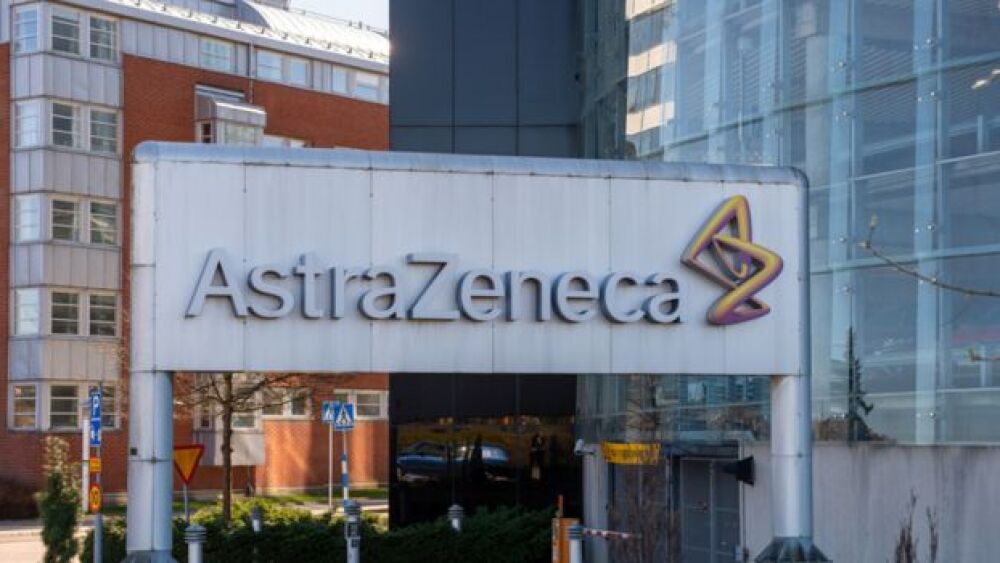In a bid to join Eli Lilly and Novo Nordisk in the lucrative, high-growth obesity market, AstraZeneca is investing in a Phase I oral GLP-1RA candidate from Shanghai-based biotech Eccogene.
Pictured: AstraZeneca office in Gothenburg, Sweden/iStock, Wirestock
AstraZeneca has signed an exclusive license agreement with Shanghai-based biotech Eccogene for ECC5004, an early-stage investigational oral glucagon-like peptide 1 receptor agonist that is being developed for obesity, type 2 diabetes and other cardiometabolic diseases.
Under the terms of the deal announced on Thursday, AstraZeneca will make an upfront payment of $185 million with the potential for nearly $1.83 billion in future clinical, regulatory and commercial milestones. Eccogene will also be eligible for tiered royalties on net product sales.
In exchange for its investment, AstraZeneca will have the exclusive global rights to develop and commercialize ECC5004—except in China, where the pharma will share these rights with Eccogene.
“We believe this oral GLP-1RA molecule could offer alternatives to current injectable therapies both as a potential monotherapy as well as in combination for cardiometabolic diseases such as type-2 diabetes, as well as for obesity,” Sharon Barr, AstraZeneca’s executive vice president of biopharmaceuticals R&D, said in a statement.
Designed to be taken orally once a day, ECC5004 is a small molecule agonist of the GLP-1 receptor, the activation of which stimulates the secretion of insulin in response to increasing blood glucose levels. The candidate is currently being assessed in a Phase I study in the U.S., data from which are “promising,” according to Barr.
Preliminary data from this early-stage study point to a “differentiating clinical profile” for ECC5004, highlighting its good tolerability alongside its promising performance in terms of glucose and weight reductions, according to AstraZeneca’s announcement.
Thursday’s deal puts AstraZeneca in the hunt to target the lucrative weight-loss market, though it still lags far behind its main competitors. On Wednesday, Eli Lilly won the FDA’s approval for Zepbound (tirzepatide), the first-ever authorized treatment targeting two incretin hormone receptors—GIP and GLP-1—for chronic weight management.
Tirzepatide is also being sold under the brand name Mounjaro, which was first approved in May 2022 and is indicated for type 2 diabetes, but has been used off-label for obesity.
Another front-runner in the weight loss market is Novo Nordisk, which during its third-quarter earnings report last week revealed that sales for its obesity treatment Wegovy skyrocketed more than 700% from the same quarter in 2022. Since its approval in June 2021, Wegovy has generated strong market demand that has consistently outpaced Novo’s production capacity.
The weight loss market is expected to grow even further in the coming years, with some analysts expecting figures to reach $100 billion, while others post forecasts of $150 billion to $200 billion.
Tristan Manalac is an independent science writer based in Metro Manila, Philippines. He can be reached at tristan@tristanmanalac.com or tristan.manalac@biospace.com.






